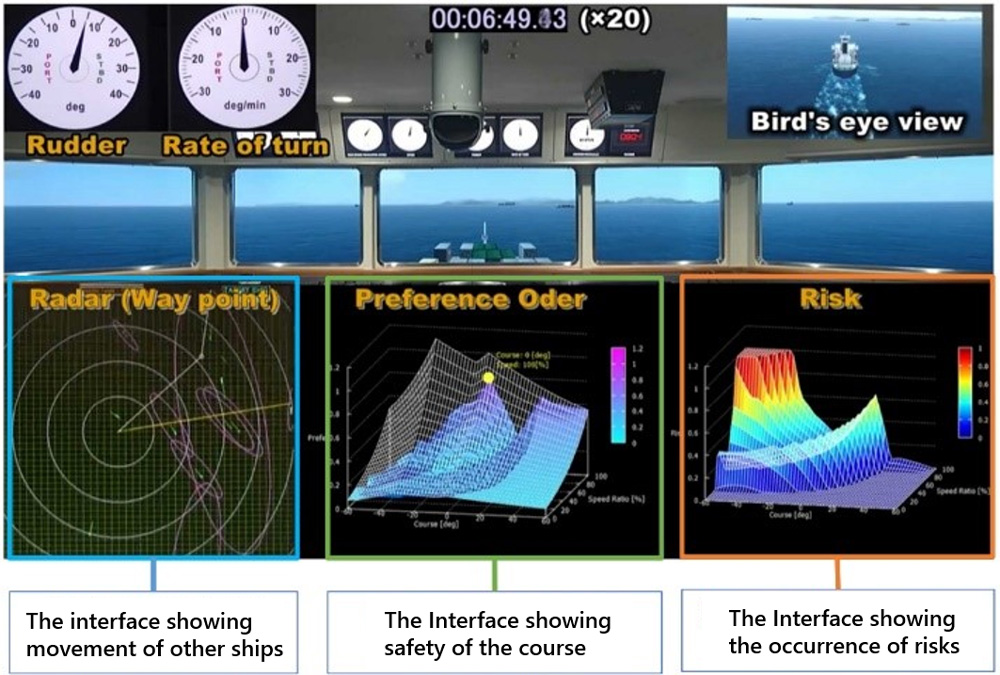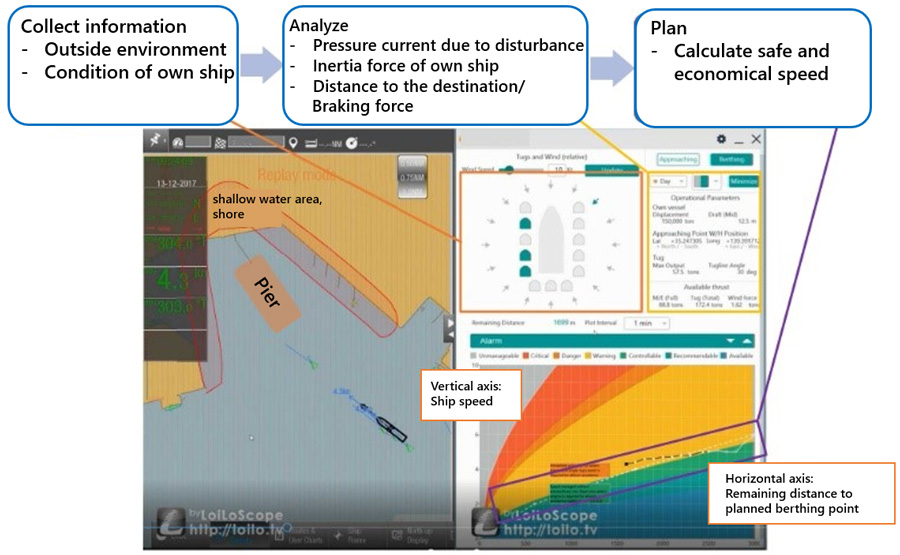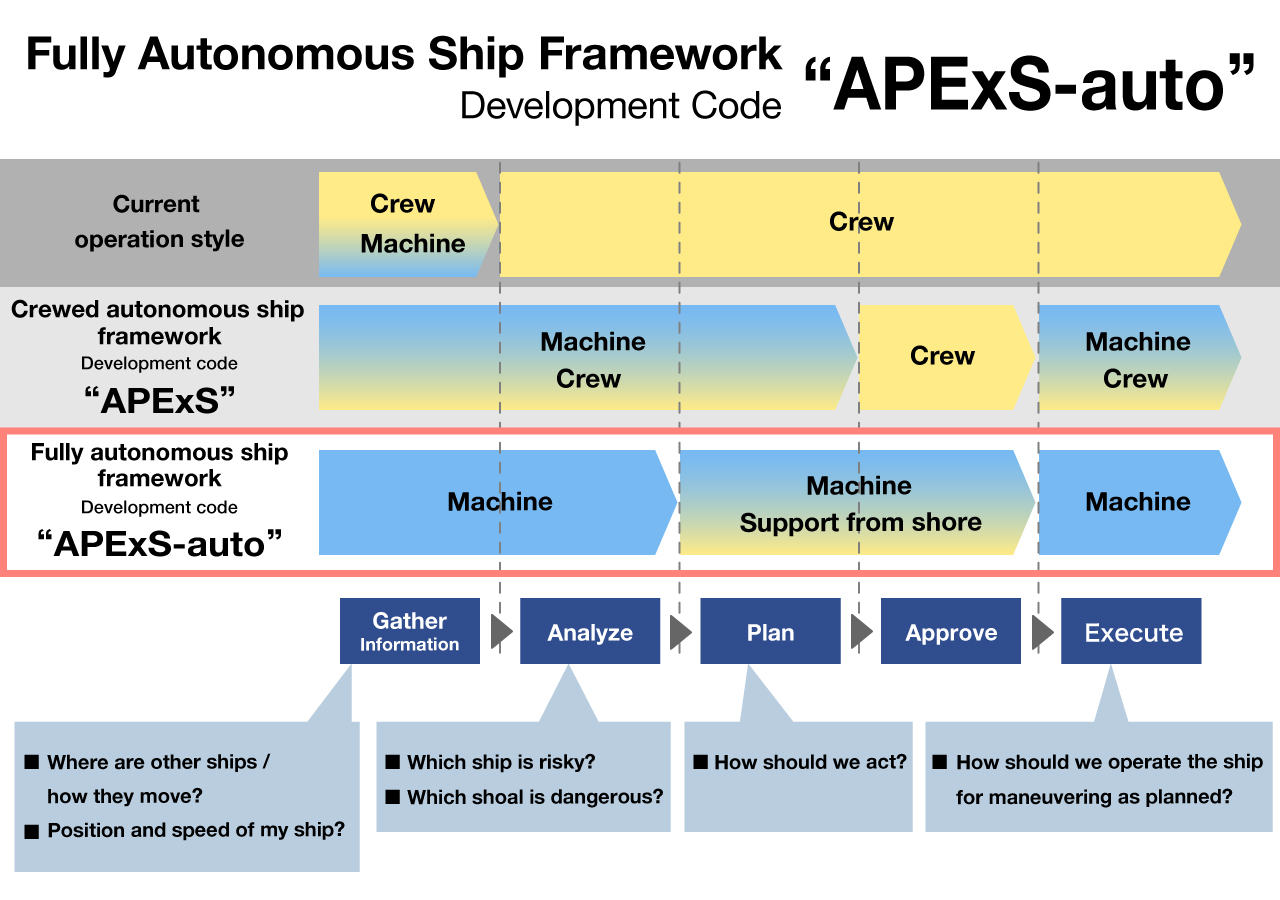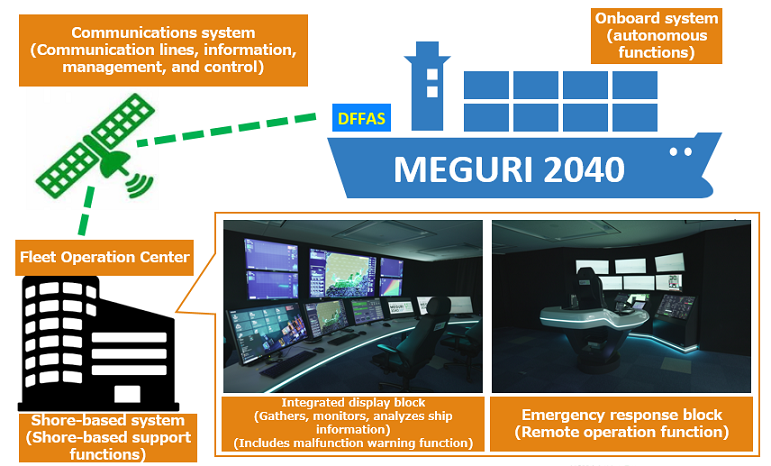Autonomous Ships
October 3, 2022
Technology development aiming for crewed autonomous ships
The NYK Group aims to develop “crewed autonomous ships,” which will support crew operations on board with advanced automation technology and remote support from shore to enable safer and more efficient ship operations. By combining the characteristics of humans, such as extreme flexibility and the ability to process ambiguous information, with the characteristics of machines, such as high information-processing capacity and constant objectivity, crewed autonomous ships can respond to situations beyond human processing capacity and provide support that complements human weaknesses.

Figure 1) Collision prevention assistance function
We have been conducting R&D of the collision prevention support function (Figure 1) and the berthing and un-berthing assistance function (Figure 2) as the element technologies. Both of these functions support ship operations by displaying the results of advanced information recognition and analysis by a machine in an interface that is easy for humans to understand. As remote support from shore, we have conducted the verification and evaluation of a system, in which crew approves the plan and the ship is automatically navigated according to the plan. A voyage plan is created on shore and presented to the operating ship based on the information and analysis results of the ship’s onboard sensors and cameras, as well as analysis results that can only be obtained on shore (such as extensive weather and sea conditions information).

Figure 2) Berthing and un-berthing assistance function
Development of autonomous ship framework
Based on the technological development described above, we developed an autonomous ship framework, APExS (Action Planning and Execution System), in 2020, and obtained approval in principle (AiP) from ClassNK. The APExS is a framework for the realization of crewed autonomous ships, in which machines support the crew in recognizing the situation and making decisions necessary for ship operation through fast and accurate information processing technology and risk analysis, and the machines execute ship control with the crew’s approval. Further, we developed APExS-auto (Figure 3), which is a more advanced (automated) version of APExS-auto, with the role of the machine part is positioned as an active supporter of humans.

Figure 3) APExS-auto
Project for designing the future of crewless maritime autonomous surface ships: a grand design by diverse experts
From 2020 to 2022, the NYK Group joined the DFFAS (Designing the Future of Full Autonomous Ship) consortium in the “the Joint Technological Development Programme for the Demonstration of Unmanned Ships” under the “MEGURI 2040” crewless maritime autonomous surface ships project administrated by the Nippon Foundation. In this consortium, MTI conducted a system concept design and risk assessment based on the existing technology development and the APExS-auto framework for fully autonomous ships, and developed a ship-side system for autonomous functions, a shore-side system for monitoring and support on land, and a communication system for stable information communication between ship and shore (Figure 4). From February 26 to March 1, 2022, a series of round voyages of approximately 790 km between the Port of Tokyo and the Port of Tsu-Matsusaka, including unberthing maneuvers, in-bay maneuvers, coastal maneuvers, and berthing maneuvers, were conducted utilizing this automated navigation system.

Figure 4) Development of an automatic navigation system in DFFAS PJ
(Writer: Tomoya Yanagihara)
Related Links
Challenge to Realize Fully Autonomous Ship” (Short version) – DFFAS Consortium Documentary
Contact
For additional information about this, please contact us by our inquiry form.
